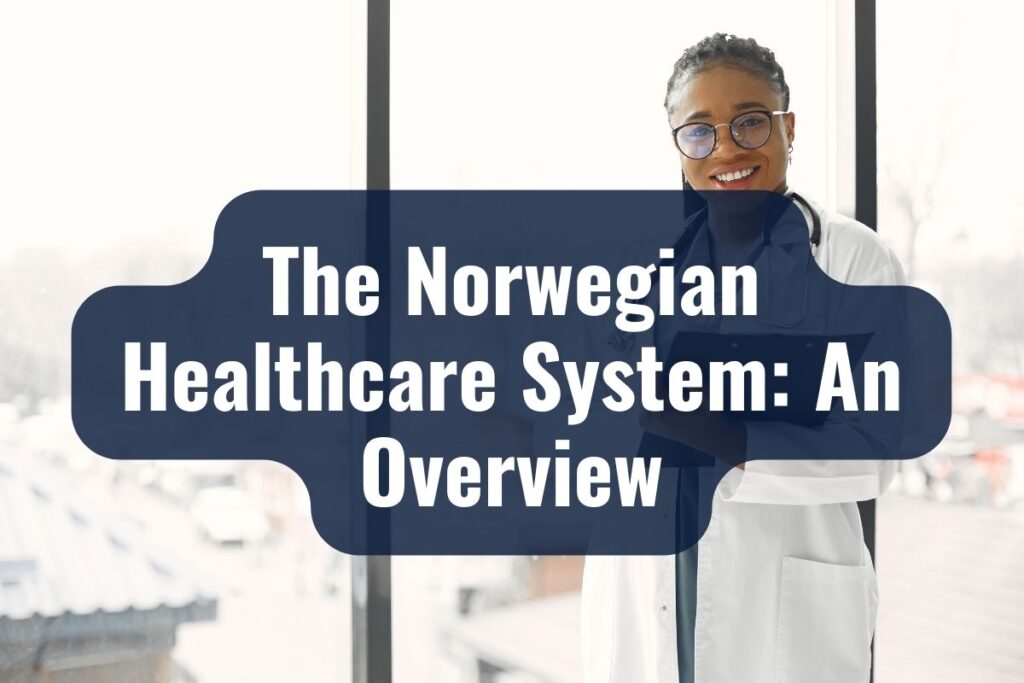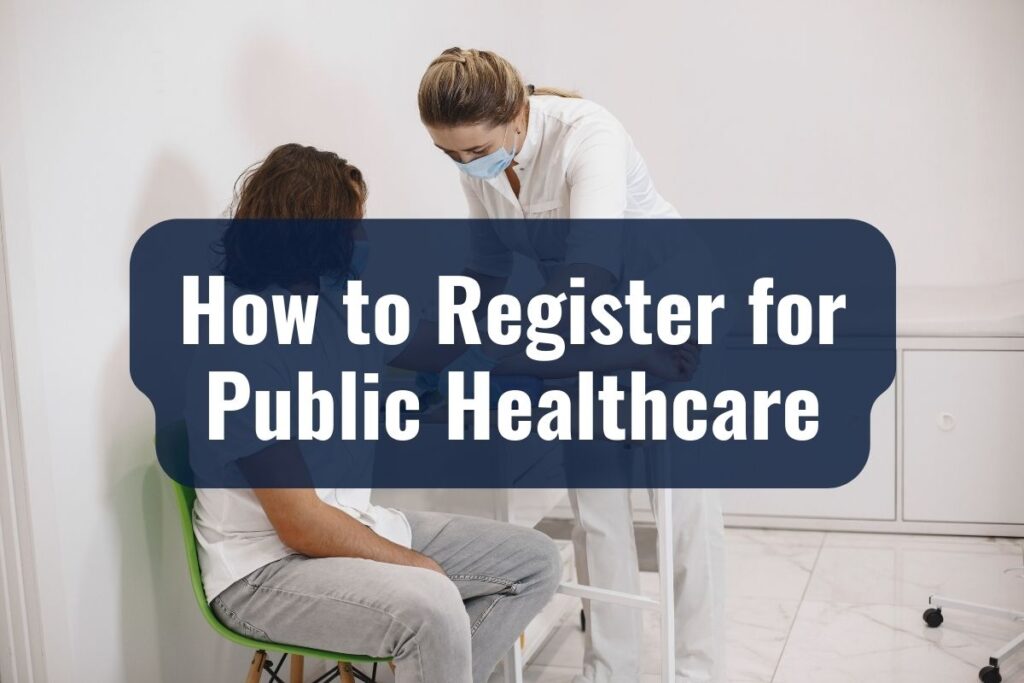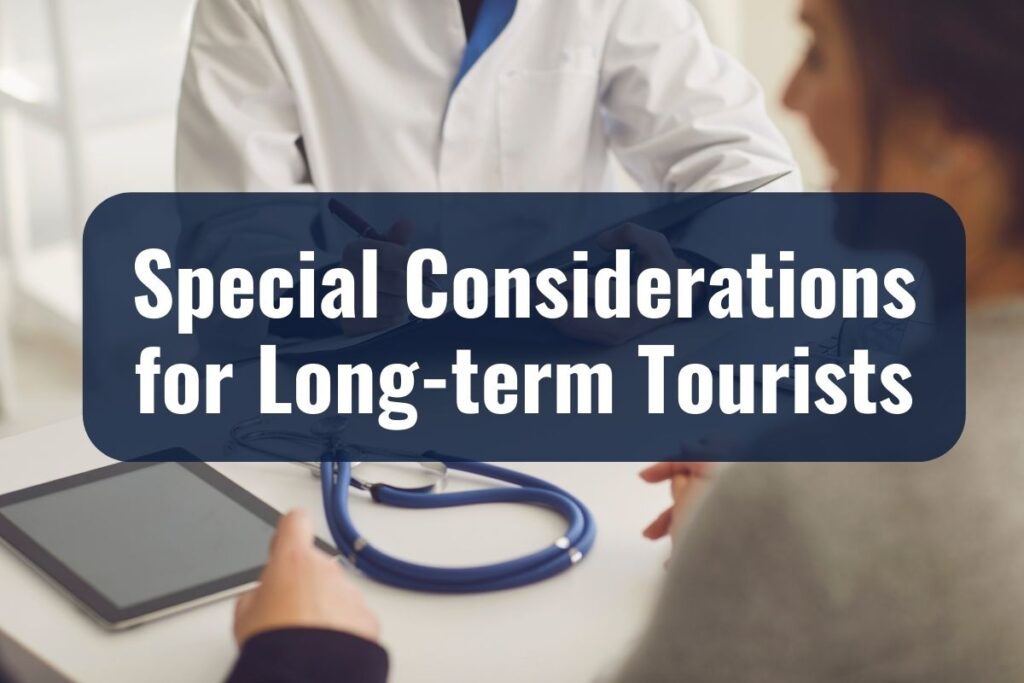Navigating the complexities of a new country’s healthcare system can be daunting, especially if you’re dealing with language barriers and cultural differences. If you’re a foreigner in Norway, having a clear understanding of how health insurance works here can offer you not just medical coverage, but also peace of mind.
Today we will guide you to through health insurance in Norway, covering everything from public healthcare eligibility to private healthcare options. Whether you’re planning to stay for a few months or considering making Norway your permanent home, this article will help you understand what you need to know about securing your health coverage in this Nordic nation.
Key Takeaways
- Norway’s healthcare system is predominantly publicly funded, but not entirely free.
- Registration in the National Insurance Scheme is essential for access to public healthcare.
- Private healthcare options offer benefits like shorter waiting times and specialized treatments.
- Expats should consider how their international insurance integrates with Norway’s public healthcare.
- Long-term tourists can utilize options like EHIC and travel insurance for healthcare coverage.
The Norwegian Healthcare System: An Overview

Norway has a well-regarded healthcare system that is primarily publicly funded, offering high-quality medical services to its residents. The cornerstone of healthcare in Norway is the National Insurance Scheme, locally known as Folketrygden, which provides a safety net not just for healthcare but also in areas like unemployment, retirement, and more.
Public Healthcare
In Norway, public healthcare is a universal right. The services range from primary care treatments such as general check-ups and vaccinations, to more specialized treatments, like surgeries and long-term hospital stays. The focus is on preventative care and early diagnosis, aiming for comprehensive wellness rather than just treating illnesses.
Residents typically have a General Practitioner (GP) or family doctor they can consult for non-emergency medical issues.
For specialized treatments, GPs will usually give a referral to see a specialist.
Public hospitals are quite advanced and generally well-equipped, and you can expect a high standard of care throughout the public healthcare system.
Private Healthcare
While the public healthcare system in Norway is robust and effective, private healthcare is also an available option. Private healthcare providers often offer faster access to specialists and elective treatments, albeit at a higher cost than their public counterparts.
Private healthcare is often used for treatments not covered under the public system or for faster access to specialized services.
Related: Private hospitals in Norway
National Insurance Scheme (Folketrygden)
The National Insurance Scheme, or Folketrygden, is crucial to understanding health insurance in Norway. This is the fund into which working individuals pay a portion of their income to ensure comprehensive healthcare coverage.
It is mandatory for most residents, including foreigners who intend to stay in Norway for a significant period.
By being a member of Folketrygden, you’re entitled to a range of benefits, including:
- General healthcare
- Maternity benefits
- Certain types of dental care
Eligibility for Public Healthcare
If you’re settling into life in Norway, one of the first things you’ll want to sort out is your eligibility for public healthcare. The process is generally straightforward and aims to provide you with access to the healthcare you might need while living in this country.
Requirements for Foreigners
Being eligible for public healthcare in Norway generally hinges on your residence status.
If you are a legal resident in Norway and have intentions of staying for more than six months, you are usually required to become a member of the National Insurance Scheme (Folketrygden).
This scheme covers not just citizens but also foreign nationals who meet the eligibility criteria.
EEA Agreement and Bilateral Treaties
If you are a citizen of an EEA (European Economic Area) country or Switzerland, you have access to necessary healthcare in Norway through the European Health Insurance Card (EHIC). This is not a substitute for comprehensive health insurance, but it allows you to receive medical care on the same terms as Norwegian citizens for a limited period.
Norway also has bilateral treaties with some countries outside the EEA, like Canada and Australia, which might allow for certain healthcare benefits. However, these agreements are generally limited in scope compared to the comprehensive benefits offered by the National Insurance Scheme.
Residence Permits and D-Number
For non-EEA citizens, a residence permit is usually required to register for public healthcare. Once your residence permit is granted, you’ll be assigned a D-Number (temporary identification number), which is essential for healthcare registration, among other things.
How to Register for Public Healthcare

Once you’ve determined your eligibility for public healthcare in Norway, the next important step is to actually register for it. This process can seem challenging, especially if you’re new to the country and its administrative systems, but don’t worry. The registration process is designed to be as streamlined as possible, and you’re certainly not alone in navigating this journey.
Step-by-Step Guide to Registration
1. Obtain a D-Number or Personal Identification Number
If you haven’t already, make sure you have a D-Number or a personal identification number. For most foreigners, the D-Number is the initial identification number provided. It’s essential for many aspects of life in Norway, healthcare included.
2. Register with NAV
The National Insurance Administration (NAV) is your next stop. Registering with NAV will effectively make you a part of the National Insurance Scheme (Folketrygden). You can visit a local NAV office or register online through their website.
3. Submit Required Documents
When registering, you’ll usually need to provide:
- A valid passport
- Proof of residence or residence permit
- Employment contract if you’re an international job seeker
4. Choose a General Practitioner (GP)
Once registered, you’ll be able to select a GP or family doctor. This is usually done through the “Min Fastlege” system on the NAV website. You can choose a doctor based on location, availability, or personal preference.
5. Receive Confirmation
After successfully registering and choosing a GP, you will receive a confirmation, usually via mail, that you’re now a part of the National Insurance Scheme and are eligible for public healthcare services.
Importance of Registering with a General Practitioner (GP)
Having a GP is central to accessing healthcare services in Norway. Your GP will be your first point of contact for any non-emergency medical issues and is responsible for referring you to specialists when needed. Being registered with a GP also helps in maintaining a consistent medical record, which can be invaluable for long-term healthcare.
Documents Needed for Registration
As mentioned, you’ll typically need:
- A valid passport
- A residence permit or proof of residence
- An employment contract if you’re working
Cost and Coverage of Health Insurance in Norway
While the country offers excellent public healthcare services, it’s essential to know what to expect so that you can plan your finances accordingly. Rest assured, the system is designed to be transparent and fair, offering several services either free of charge or for a modest fee.
What’s Generally Covered
Being a member of the National Insurance Scheme (Folketrygden) grants you a wide range of healthcare services. This includes, but is not limited to:
- General Practitioner (GP) visits
- Specialist consultations (with referral)
- Hospital treatments and surgeries
- Preventive care like vaccinations
- Maternity and child healthcare
- Some types of dental care
Co-payments
Even though healthcare in Norway is predominantly publicly funded, it is not entirely free. You will often encounter a system of co-payments for certain services. These are modest fees that you pay when visiting a GP, specialist, or when receiving other types of treatments.
For example, a visit to your GP might incur a co-payment of around 150-300 NOK. After you reach a certain limit in co-payments within a calendar year, you’ll receive an exemption card (‘frikort’), which grants you free healthcare services for the remainder of the year.
Cost Implications for Non-Citizens
If you’re a non-citizen, it’s important to note that your co-payment rates will typically be the same as for Norwegian citizens, provided you are a member of the National Insurance Scheme. However, if you are not registered and need emergency treatment, you may be charged the full cost of the service, which can be significantly higher.
Related: The Best Credit Cards in Norway for Foreigners in 2023
Private Healthcare Options

Whether you’re looking for quicker access to specialists or seeking treatments that are not covered by public healthcare, private healthcare options can offer a complementary solution.
| Feature | Public Healthcare | Private Healthcare |
| Eligibility | All registered residents | Anyone |
| Waiting Time | Usually longer | Shorter |
| Cost | Subsidized, co-payments | Full cost |
| Specialized Treatments | Limited options | Wider range |
| Coverage | Broad, includes prescriptions | Depends on plan |
| Convenience | Standard facilities, regular hours | Extended hours, luxury facilities |
When to Consider Private Healthcare
Shorter Waiting Times: One of the main benefits of private healthcare is the ability to get appointments and treatments more quickly compared to the public system.
Specialized Treatments: Private healthcare often provides a wider range of specialized treatments and therapies, some of which may not be readily available through public healthcare.
Convenience and Comfort: Private clinics often offer extended opening hours and luxurious facilities, which some people prefer for the added convenience and comfort.
Choosing a Private Healthcare Provider
Selecting a private healthcare provider is an important decision that should be based on a variety of factors such as:
Accreditation: Make sure the facility is accredited and follows healthcare standards.
Specializations: Choose a provider that specializes in the type of care you require.
Reviews and Recommendations: It can be beneficial to consult reviews or get recommendations from friends or colleagues who have used private healthcare services.
Location: Proximity could be a consideration, especially for treatments that require frequent visits.
General Costs Associated with Private Healthcare
While private healthcare offers numerous benefits, it’s essential to understand that these come at a higher cost. Unlike the public healthcare system, where costs are substantially subsidized, you will be responsible for the full cost of any private treatment. Insurance plans specific to private healthcare can help offset these costs but will also require a monthly or annual premium.
Private healthcare in Norway can range from moderately expensive to very expensive depending on the type of treatment and the facility. Always ask for a cost estimate upfront and check whether your private health insurance will cover the specific treatment.
Special Considerations for Expats
Living as an expatriate in Norway brings about unique healthcare needs and considerations. In this section, we’ll touch upon these special considerations, offering you a more customized guide to navigating the Norwegian healthcare system.
International Health Insurance
Many expats arrive in Norway with an international health insurance plan, either through their employer or a personal plan. While these plans can offer extensive coverage, it’s crucial to check:
Local Validity: Make sure your international insurance is accepted in Norway and covers the specific healthcare services you might require.
Coverage Limits: Understand the maximum amounts and any conditions or limitations tied to different types of treatments.
Coordination with Public Healthcare: Determine how your international insurance integrates with Norway’s National Insurance Scheme, if at all.
Transition Period
During the initial weeks or even months of your stay, there might be a period where you are still in the process of registering for public healthcare. During this transition, it’s advisable to have a temporary health insurance plan to cover any immediate medical needs.
Family Members
If you’re moving to Norway with your family, you’ll need to consider healthcare provisions for them as well. Children under 16 generally receive free healthcare services, but adult family members will need to follow similar registration processes to secure public healthcare benefits.
Pre-Existing Conditions
If you have pre-existing medical conditions, it’s crucial to understand how these will be managed in Norway. The public healthcare system is generally accommodating of pre-existing conditions, but you may find quicker or more specialized treatment through private healthcare services.
Dental Care
Unlike general healthcare services, adult dental care is not fully covered by the National Insurance Scheme. While some preventative and corrective services may be partially subsidized, many expats choose to maintain additional dental insurance.
Mental Health Services
Mental health services are available both through public and private channels. If mental health support is a concern, consider researching in advance which services are more suitable for your needs and whether they’re covered by public healthcare, private healthcare, or your international insurance.
Related: Pharmacies in Norway: A Guide for Foreigners
Special Considerations for Long-term Tourists

While this category of long-term tourists may not fully integrate into the National Insurance Scheme due to the temporary nature of their stay, understanding the healthcare options available to you is crucial for a stress-free experience. Here’s what you need to know:
European Health Insurance Card (EHIC)
If you’re a citizen of an EEA country or Switzerland, the European Health Insurance Card (EHIC) can be your friend during an extended stay. This card allows you to access necessary healthcare under the same terms as Norwegian citizens for a limited period. However, EHIC is not a replacement for comprehensive health insurance and primarily covers emergency and immediately necessary treatments.
Travel Insurance
Many long-term tourists rely on travel insurance plans for their healthcare needs. When selecting a plan, make sure to:
Confirm its Validity: Make sure the insurance is valid for the duration of your stay and provides sufficient coverage for both minor and major medical issues.
Understand Coverage: Thoroughly read the policy to understand what is covered and what is not. Check if the insurance offers direct billing with healthcare providers or if you’ll need to pay upfront and claim later.
Emergency Services
It’s essential to know that emergency services in Norway are available to everyone, regardless of their insurance status or nationality.
However, if you’re not registered in the public healthcare system, you might be billed for the full cost of any emergency treatment received.
Routine Check-ups and Prescriptions
For routine check-ups, consultations, and prescriptions, you’ll often have to opt for private healthcare services, which can be expensive. Some travel insurance plans may cover these costs, but always confirm in advance.
Vaccinations and Preventive Care
Some travel insurance plans also cover preventive measures like vaccinations. If you’re planning on staying for an extended period, especially during flu season or in specific regions requiring additional vaccinations, consider this coverage.
Additional Resources
- NAV (National Insurance Administration): Your go-to source for all matters related to the National Insurance Scheme.
- Helsenorge: Offers extensive information on healthcare services available in Norway, including how to find and choose a GP.
- Norwegian Directorate of Immigration (UDI): For all your visa and immigration-related queries.
- IF Health Insurance: A popular private health insurance option in Norway.
- Gjensidige: Another provider offering various health insurance plans, including dental.
- Cigna Global: Provides international health insurance plans that could be useful for expats.
- General Emergency Number: 112
- Medical Help: 113
- Fire: 110
FAQs
Is healthcare in Norway free?
Healthcare in Norway is predominantly publicly funded and is available to everyone, including expats and long-term tourists from certain countries. However, it is not entirely free. There are modest co-payments for services like GP visits, specialist consultations, and some treatments.
How do I register for the National Insurance Scheme?
To register for the National Insurance Scheme (Folketrygden), you’ll first need a D-Number or a personal identification number. After that, you can register through the National Insurance Administration (NAV), either online or by visiting a local office. You’ll need to submit various documents, including a valid passport and proof of residence.
What is a D-Number?
A D-Number is a temporary identification number assigned to foreigners who are staying in Norway for less than six months. If you plan to stay longer, you will be assigned a personal identification number.
Can I choose my own doctor?
Yes, once you’re registered in the system, you can select your General Practitioner (GP) through the “Min Fastlege” service on the NAV website. You can choose based on various factors such as location, availability, and personal preference.
Is dental care covered?
Dental care for children under 16 is generally free. However, adult dental care is not fully covered by public healthcare, and you’ll usually need to pay for dental services.
What do I do in case of an emergency?
Emergency services are available to everyone, regardless of their insurance status or nationality. In an emergency, you can go to the nearest emergency room or call the emergency number, which is 113 in Norway.
Can I use my international health insurance in Norway?
It’s possible, but you’ll need to confirm whether your international insurance is valid in Norway and what specific services it covers. Some people opt for a combination of public healthcare and supplemental international insurance.
Are prescriptions covered?
Prescription medication is usually subsidized if you’re part of the National Insurance Scheme. However, you’ll often need to make a co-payment.


